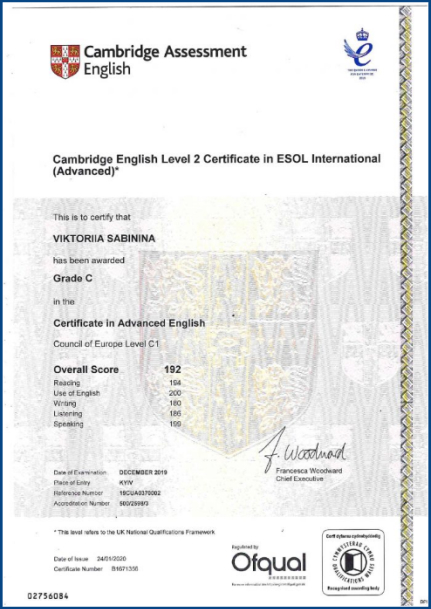Головна
Блог про навчання англійській мові
In Sickness and in Health: How to Talk about a Cold in English
In Sickness and in Health: How to Talk about a Cold in English
31.10.2018
Статті,
Цікаво про англійську

Autumn is a beautiful season – leaves are turning bright yellow, orange and red colour, the days are great for walking at big distances and drinking hot beverages. However, with the temperatures dropping some of us start suffering from colds or even worse – a flu (a bad cold when your body is in pain and heat). With so many germs around (especially in public transport), catching a cold or coming down with the flu is no big surprise. And those sneezing people who don’t cover their mouths and noses! IEWW!
A cold can be described as heavy, nasty, bad or even stinking! (Mind you, this is very informal!) If your nose is the only part of the body which is suffering, you can say that you have «just a sniffle».
So, what are the main symptoms?
If you are suffering from a cold, you probably have a runny nose as well. If this symptom is particularly bad and annoying, you can say you have a streaming cold. You are destined to carry handkerchiefs or tissues around to constantly blow your nose.
The opposite of this state is when you have a blocked nose (or you say your nose is bunged-up or stuffed up), so that it makes it difficult to breathe. If you talk to a doctor, he will write in your medical form that your nose is congested, and the noun is congestion.
A cold is often accompanied by a cough. If you’re lucky, your coughs will be mild or slight, in other cases, they’ll be nasty or severe. Coughs are produced by your sore throat. A tickly cough is one that tickles the back of your throat as you produce it. A hacking cough is very loud and rough and sounds as if it hurts your throat badly. A cough which comes deep from within your chest can be described as a chesty cough. And if it brings up mucus – well, paradoxically, it is called productive in medical terminology!
The beginning of a cold is often accompanied by headaches, which can be mild, slight, severe, terrible and splitting.
Flu (or in formal English, influenza) is much worse than a cold, as fever or high temperature can add to the above-mentioned symptoms and make your whole body ache. If your body is feeling much hotter than normally, this might be a raging fever. You might say you are burning up. The best remedy for a bout of flu is laying up in bed. For a few days you might feel off your food, but it’s important to consume lots of hot liquid.
When the symptoms are relieved, you are definitely over the worst of it. You are quickly getting over it or getting better and on the road to recovery. If the symptoms go away quicker than you expected, you can say you have bounced back!
Man flu is a particularly bad type, especially for a woman who has to tend to a suffering man. Even if it’s just a sniffle, he’ll behave like he’s dying and you’ll have to satisfy a million of his requests. To make you more sympathetic he’ll probably say he’s feeling like death warmed up and will call in sick to work.
Anyway, we wish you the best of health, to be feeling as right as rain and as fit as a fiddle, and a great autumn not needing any of the expressions above!
БУДЕ ЦІКАВО
Підписатися на розсилку
Підпишись на нашу розсилку!
Будь в курсі всіх новин і знижок в навчальному центрі Cambridge club
Будь в курсі всіх новин і знижок в навчальному центрі Cambridge club



